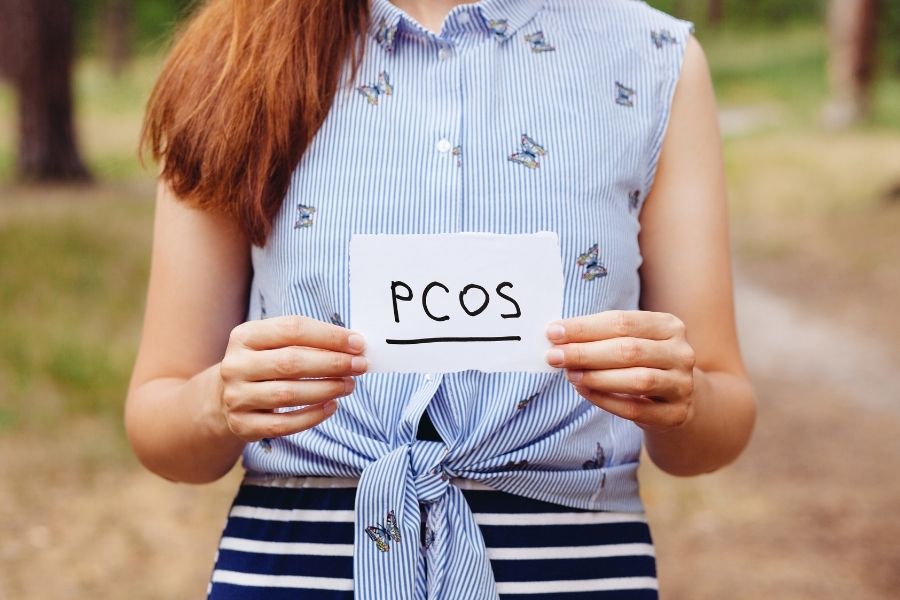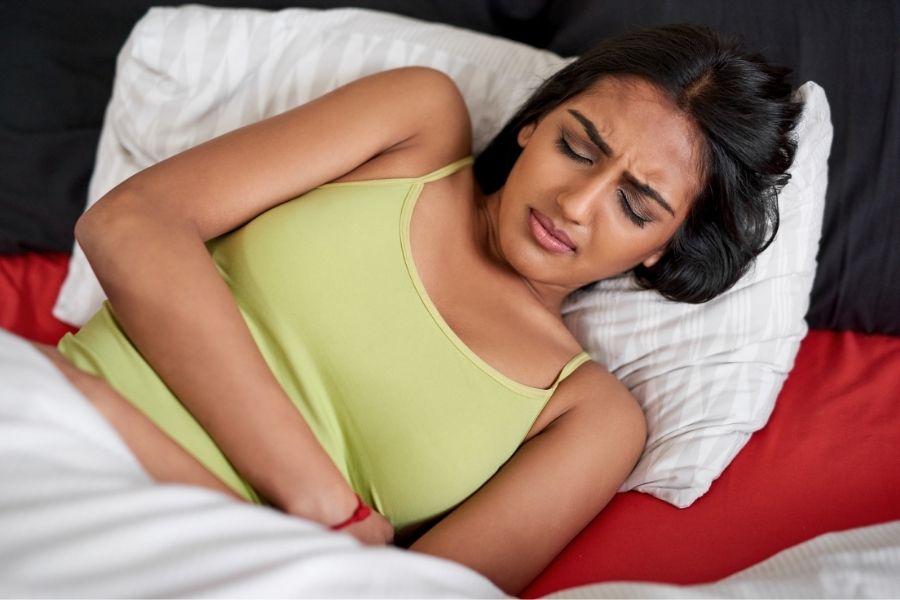Acne that won’t go away. Hair thinning at the crown. Unwanted facial hair, unpredictable periods, mood swings and weight gain.
For millions of women, these aren’t just annoying symptoms – they’re signs of a deeper, often ignored condition: androgen excess or PCOS.
With PCOS causing such a wide array of symptoms, many patients initially try to solve them in isolation. It's hard to see that it’s all connected until we have that "A-ha!" moment with our doctor. So, while receiving a PCOS diagnosis may not be happy news, it at least helps to explain the connection between the various health issues you may be struggling with.
Though it may be common, living with PCOS is no easy task.
In 2018, media professional Abira Dasgupta noticed she was rapidly gaining weight, which, despite all her efforts, seemed impossible to lose.
Coupled with an irregular menstrual cycle and the early signs of hair thinning, she became more anxious and went to a doctor.
After a number of blood tests, she was diagnosed with polycystic ovary syndrome (PCOS).
Now 32, she has struggled with self-confidence since being diagnosed. "Thinning hair freaks me out. I am dealing with anxiety daily in my life due to this. My gynae told me to lose weight, to stop eating outside food, to start doing exercise and to consume fruits that are low in glycemic index. All of these suggestions are helpful," said the media professional.

She further added, "Getting periods on time every month is still a dream."
"When I was first diagnosed with PCOS I was 17, and riddled with all the insecurities that came with that age. I was clueless, and one question that kept haunting me was 'how it happened'. I had painful cystic acne all over my face. I was embarrassed when my friends used to ask me the reason for my acne. Some suggested creams and face washes. I tried to avoid them," said the 25-year-old IT professional.
"I personally never had any medicine as doctors never prescribed me any; they only asked to shed weight and have a healthy lifestyle. I get my periods on time but it comes with heavy flow and pain. If we change our day-to-day lifestyle sooner or later it will help,” Aditi Roy added.
"Yoga or cardio is the best way to do your physical activity for at least half an hour in a day."
My Kolkata spoke also with experts to know the unknown sides of PCOS.

“PCOS is not new. It was there before as well. It’s just that now people are more aware of it. The main reason for the rise of PCOS is stress and lifestyle,” said Shamita Ghosal, gynecologist obstetrician, Nightingale Hospital.
Ghoshal further said, “Not every case needs medications. Some get healed by just maintaining a healthy lifestyle and managing their weight. Not all bodies are the same.”
Can PCOS cause type two diabetes or any other complications? “Yes, few things are common like high blood pressure, high cholesterol, diabetes among others. But if you eat less junk, sugar and maida, then things won’t really get that bad. Physical activities, stress management are also equally important along with regular eight hours sleep,” she said.
Ghoshal asserted that thyroid or ovarian cancer and cervical cancer are not linked with PCOS, but she added, “Patients diagnosed with PCOS are at a risk of endometrial cancer.”
Chandrima Dasgupta, gynecologist and obstetrician, suggested that genes play a significant role in the development of PCOS, along with other factors like lifestyle and environment.
“Family history of insulin resistance or diabetes can also be the reason for having PCOS. Women with a family history of PCOS, particularly a mother or sister, are at an increased risk of developing the condition.”

Dasgupta cleared some of the common myths around it, “That women with PCOS can’t get pregnant is not true. There can be a chance of some fertility issues, which can be solved through proper tests and doctor consultation.”
She further added, “At the same time, there are cases where we have seen PCOS patients conceive naturally – without any doctor’s help. That is possible if one follows a healthy lifestyle, exercises daily, eats more whole grain foods and less packaged, processed foods.”
“Brisk walking, strength training, choosing foods like oats, eggs, chicken, fish, atta roti, fruits, seeds and nuts, green leafy vegetables and other unprocessed, low-carbohydrate foods,” suggested Dasgupta.
She stressed on the importance of not eating foods that cause insulin levels to rise as much or as quickly as foods with a higher GI, such as some carbs.
Talking about irregular periods, the gynecologist said, “It is normal to get periods in a gap of two to three months. One may not have periods for straight 12 months.”
Koushik Lahiri, based at Apollo Multispecialty Hospitals said, “Common skin problems in PCOS patients are oily skin, easy tanning potential, painful acne, darkening pigmentation, hair thinning, unwanted hair on face (also known as hirsutism). Seborrheic dermatitis among PCOS patients is also very common.”
The best skin care routine is to “apply non-comedogenic, water-based or gel-based sunscreen. Regular cleansing, if someone is suffering from pigmentation then it needs to be treated with non steroidal products like salicylic acid, etc. Never skip moisturising your face.”


